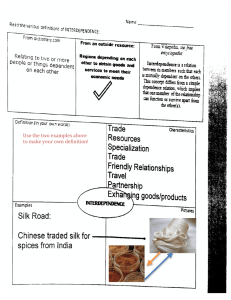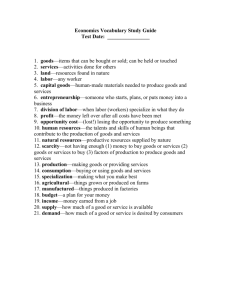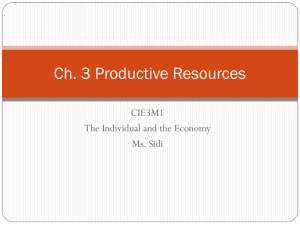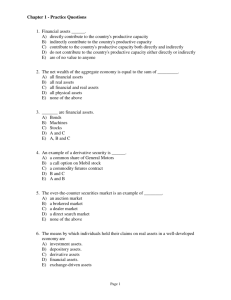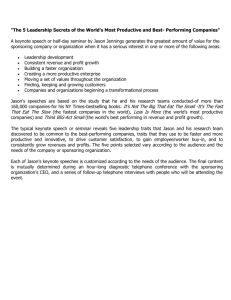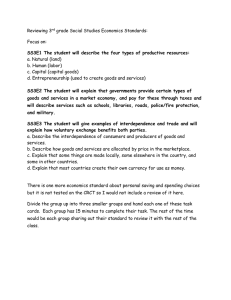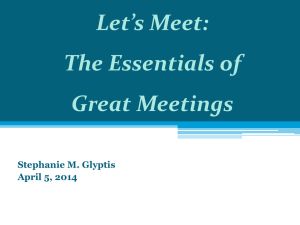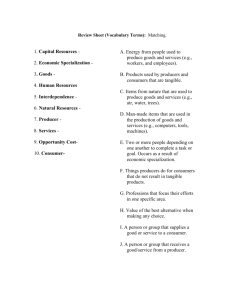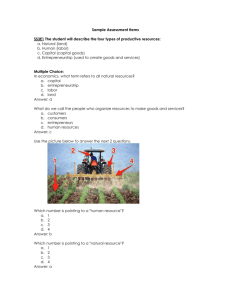Economics Vocabulary
advertisement
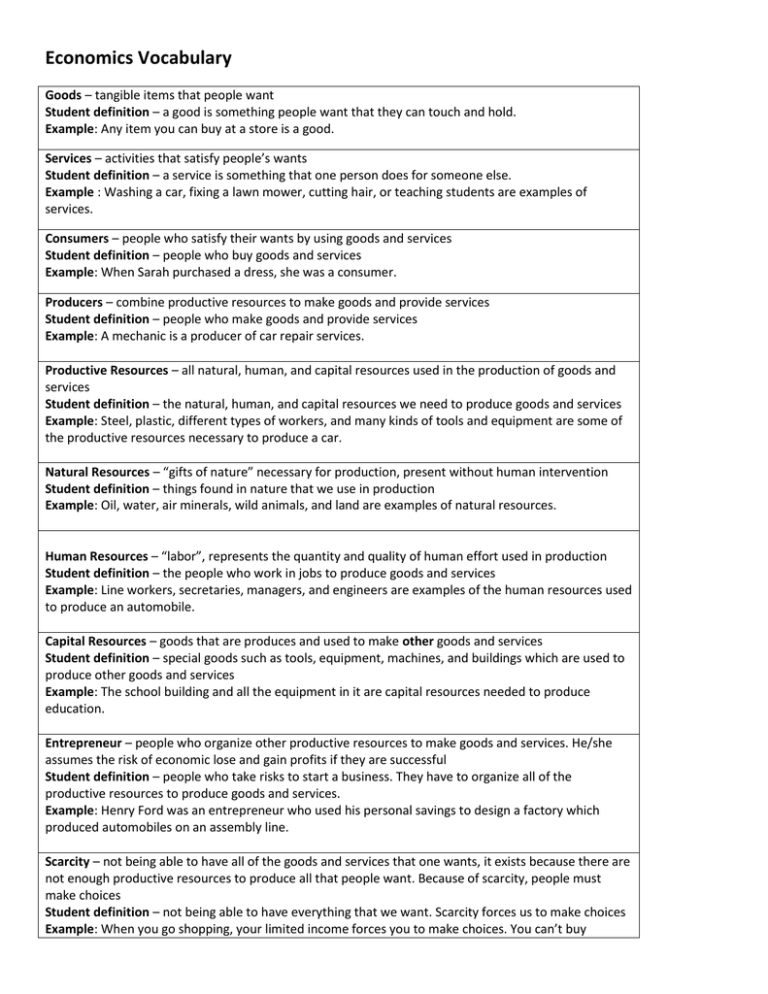
Economics Vocabulary Goods – tangible items that people want Student definition – a good is something people want that they can touch and hold. Example: Any item you can buy at a store is a good. Services – activities that satisfy people’s wants Student definition – a service is something that one person does for someone else. Example : Washing a car, fixing a lawn mower, cutting hair, or teaching students are examples of services. Consumers – people who satisfy their wants by using goods and services Student definition – people who buy goods and services Example: When Sarah purchased a dress, she was a consumer. Producers – combine productive resources to make goods and provide services Student definition – people who make goods and provide services Example: A mechanic is a producer of car repair services. Productive Resources – all natural, human, and capital resources used in the production of goods and services Student definition – the natural, human, and capital resources we need to produce goods and services Example: Steel, plastic, different types of workers, and many kinds of tools and equipment are some of the productive resources necessary to produce a car. Natural Resources – “gifts of nature” necessary for production, present without human intervention Student definition – things found in nature that we use in production Example: Oil, water, air minerals, wild animals, and land are examples of natural resources. Human Resources – “labor”, represents the quantity and quality of human effort used in production Student definition – the people who work in jobs to produce goods and services Example: Line workers, secretaries, managers, and engineers are examples of the human resources used to produce an automobile. Capital Resources – goods that are produces and used to make other goods and services Student definition – special goods such as tools, equipment, machines, and buildings which are used to produce other goods and services Example: The school building and all the equipment in it are capital resources needed to produce education. Entrepreneur – people who organize other productive resources to make goods and services. He/she assumes the risk of economic lose and gain profits if they are successful Student definition – people who take risks to start a business. They have to organize all of the productive resources to produce goods and services. Example: Henry Ford was an entrepreneur who used his personal savings to design a factory which produced automobiles on an assembly line. Scarcity – not being able to have all of the goods and services that one wants, it exists because there are not enough productive resources to produce all that people want. Because of scarcity, people must make choices Student definition – not being able to have everything that we want. Scarcity forces us to make choices Example: When you go shopping, your limited income forces you to make choices. You can’t buy everything you want. Opportunity Cost – a choice is the value of the best alternative given up Student definition – when you make a decision, the most valuable alternative that you don’t choose is your opportunity cost Example: Shanika wants to be a nurse and teacher, but she can’t be both. She decides to be a nurse, so being a teacher is her opportunity cost. Trade-Offs – means getting a little more of one option in exchange for a little less of something else. Few choices are all-or-nothing decisions; most involve trade-offs Student definition – getting a little less of one thing in order to get a little more of another Example: Jethro loved to buy baseball cards. So when he used part of his birthday money to buy some candy instead, he was trading off cards for candy. Money – anything used to exchange goods and services, to be effective money must be scarce, durable, portable, and divisible Student definition – money is what people use to buy goods and services Example: Many different items have been used as money throughout history including gold, silver, shells, tobacco, and paper. Price – what people pay when they buy a good or service and what they receive when they sell a good or service; in a free marker, price is determined by supply and demand Student definition – amount of money that people pay when they buy a good or service. It is determined by the buying and selling decisions of consumers and producers Example: Tabitha paid a price of $1.50 for the pack of gum. Specialization – when people produce a narrower range of goods and services than they consume; specialization increases productivity and results in greater interdependence Student definition – people specialize when they work in jobs where they produce a few special goods and services. When people specialize, they produce more but they also depend more on one another Example: Jason is a mechanic. He gets his hair cut at Joe’s Barber Shop. Joe goes to Jason to get his car fixed. Jason and Joe earn more by specializing, but they must depend on one another. Interdependence – when people and nations depend on one another to provide for each other’s wants Student definition – occurs when people and nations depend on one another to provide the goods and services they want; more people specialize and trade – the more interdependent they become Example: Canada and the United States are very interdependent because they trade so much with one another. Productivity – ratio of output (goods and services) produced per unit of input (productive resources) over some period of time Student definition – measures how many goods and services are produced over a period of time; usually measured as output per hour Example: When Maurice purchased a snowblower he greatly increased his productivity – he was able to clean many more sidewalks each day. Profit – the difference between the sales revenues and all the costs of producing a good or service Student definition – produce or sell a good or service, your profit is the difference between the money you make when you sell it and all your costs of production Example: Beatrice received $200 from selling lemonade. She figured all her costs were $125. Her profit was $75. Role of Government – main role of government in a market economy is to : provide a legal framework; ensure competition; provide public goods, such as road and national defense; and control “market failures” such as pollution and animal extinction Student definition – important roles of government in an economy are: 1) Provide laws to help the economy run smoothly 2) Make sure there is enough competition among businesses 3) Provide public goods, such as roads and national defense 4) Control bad effects of production (such as pollution and protect endangered resources) The government gets money by collecting taxes. Example: Enforcing business contracts through the legal system is an important role that government plays in the United States economy. International Trade – exchange of goods and services among people and institutions in different nations Exports are domestic goods and services that are sold to buyers in other nations. Imports are goods and services that are bought from sellers in other nations. Quotas (limits on imports) and tariffs (taxes on imports) are common barriers to trade. Example: The United States imports coffee and exports wheat. Additional terms: Vocabulary Words 3rd grade - Unit 4 Goods Services Consumers Producers Productive Resources Natural Resources Human Resources Capital Resources Entrepreneur Scarcity Trade Offs Money Price Specialization Interdependence Productivity Profit Role of Government International Trade
